Working as a behavioral health technician is one of the most rewarding careers that can offer you the chance to help people who are struggling with significant mental health and substance-related challenges. Behavioral health technicians play a crucial role in assisting patients and implementing treatment plans to facilitate the recovery process in clinical or residential settings. Learning about the proper behavioral health training, certification, and essential skills you need to succeed in this career path can be the first step if this is the right career path for you.
With this complete guide, you will learn the first steps to pursue a career as a behavioral health technician, including helpful certifications such as behavioral health counselor certification, drug and alcohol counselor training, and peer counselor certification.
Understand the Role of a Behavioral Health Technician
Behavioral health technicians (BHSs) work alongside mental health providers in direct care of clients who are experiencing an issue with a behavioral, emotional, or addiction-related concern. Over time, their responsibilities often come to involve observing patients, conducting therapeutic exercises, performing intake interviews, and tracking patient progress.
For this part, you should have empathy, patience, and observational skills, and most importantly, you should work as part of a multidisciplinary team.
Obtaining the Required Training for Behavioral Health
Most BHT positions require relevant behavioral health training that has a focus on the basics of mental health conditions, substance abuse, crisis intervention, and therapeutic techniques. You will learn how to work with these populations while maintaining ethics and safety through training programs.
Aside from that, you can also opt for diploma or certificate programs that make you ready for an entry-level job. Such certifications designed specifically for behavioral health technicians are available through many community colleges, vocational schools, and online providers.
Pursue Behavioral Health Counselor Certification
Certifying yourself as a behavioral health counselor proves that you have what it takes to be successful in the role and gives you a competitive edge in your job. This establishes a greater comprehension of counseling theories and prepares you for higher-level positions or to make your way toward becoming a licensed counselor.
On the other hand, certified behavioral health counselors have taken coursework on counseling theory, ethics, and clinical skills (accompanied by supervised practical experience).
Explore Drug and Alcohol Counselor Training
If you have an interest in training exclusively to treat addictions, you may want to look into drug and alcohol counselor training. Training that is specific to substance use disorders, stages of recovery, intervention methods, and preventing relapse.
This training will teach you how addiction works and how to assist clients on their journey to recovery.
Consider Peer Counselor Certification
Peer counselor certification is another route to enhance your behavioral health career. Peer counselors share personal experiences of mental health or substance use recovery as a means of providing specialized support and encouragement.
In this certification program, you will learn all about peer support skills, boundaries, and ethical practices, and become a peer support person, mentor, and advocate in recovery-oriented settings.
Gain Practical Experience
Readily available hands-on experience, usually in the form of internships, volunteer work, or entry positions, is key in behavioral health. You are getting practical experience that increases confidence and enhances interpersonal skills while deepening understanding of client needs.
Seek places of internship like hospitals, rehabilitation centers, community mental health agencies, or residential treatment programs.
Develop Key Skills for Success
Some of the essential skills of a successful behavioral health technician are —
- Communication: Have sincere and transparent conversations with both your clients and your team.
- Awareness: Subtle shifts in patterns of behavior and emotion
- Identify and Solve Problems: Walk some clients through crises and tough situations.
- Rather, cultural Competence: Respect for individual backgrounds and beliefs
- Team Collaboration: Interacting with diverse professionals
Over time, ongoing professional development reinforces these competencies.
Obtain Employment and Continue Education
Obtain a job setting after practicing & gaining experience in the career in behavioral health through outpatient clinics, inpatient hospitals, and community programs. When you interview for a position, be ready to provide proof of your certifications, your training history, and any other areas of expertise you may have, as well as expressing your passion for taking care of clients.
A number of technicians advance their careers by obtaining higher degrees—e.g., degrees in psychology, social work, or counseling—and seeking licensure or additional certifications.
FAQs
1: What are the requirements to become a behavioral health technician?
Data indicates that most positions will require a high school diploma or general equivalency diploma (GED) along with specialized behavioral health training or certification. Others may opt for job seekers with an associate degree or related experience.
2: Do people working as technicians need a behavioral health counselor certification?
While this isn’t always required, it is encouraged to help advance your career and prove your expertise further.
3: What help is drug and alcohol counselor training to my job?
It gives you knowledge about the treatment of addiction that provides more job opportunities in substance abuse facilities and expands your skill set.
4: What is peer counselor certification?
This course enables those with lived experience to offer empathetic support and advocacy to others in recovery.
5: Which Behavioral Health Training Courses Are Credible?
Accredited certification programs are available at various community colleges, vocational schools, and online.
Conclusion
Working as a behavioral health technician is a great entry-level way to help those who are struggling with mental health and/or addiction issues throughout their career. To establish yourself in this fulfilling profession, you should embark on behavioral health education, earn certifications, such as in behavioral health counselor certification, drug and alcohol counselor training, or peer counselor certification, among others, as well as work in the field itself.If you are now prepared to take this step in your career in behavioral health, with the help of qualified experts, Laitinen Academy offers high-quality courses to promote your behavioral health career with certainty and professionalism. Explore now and get ahead.
